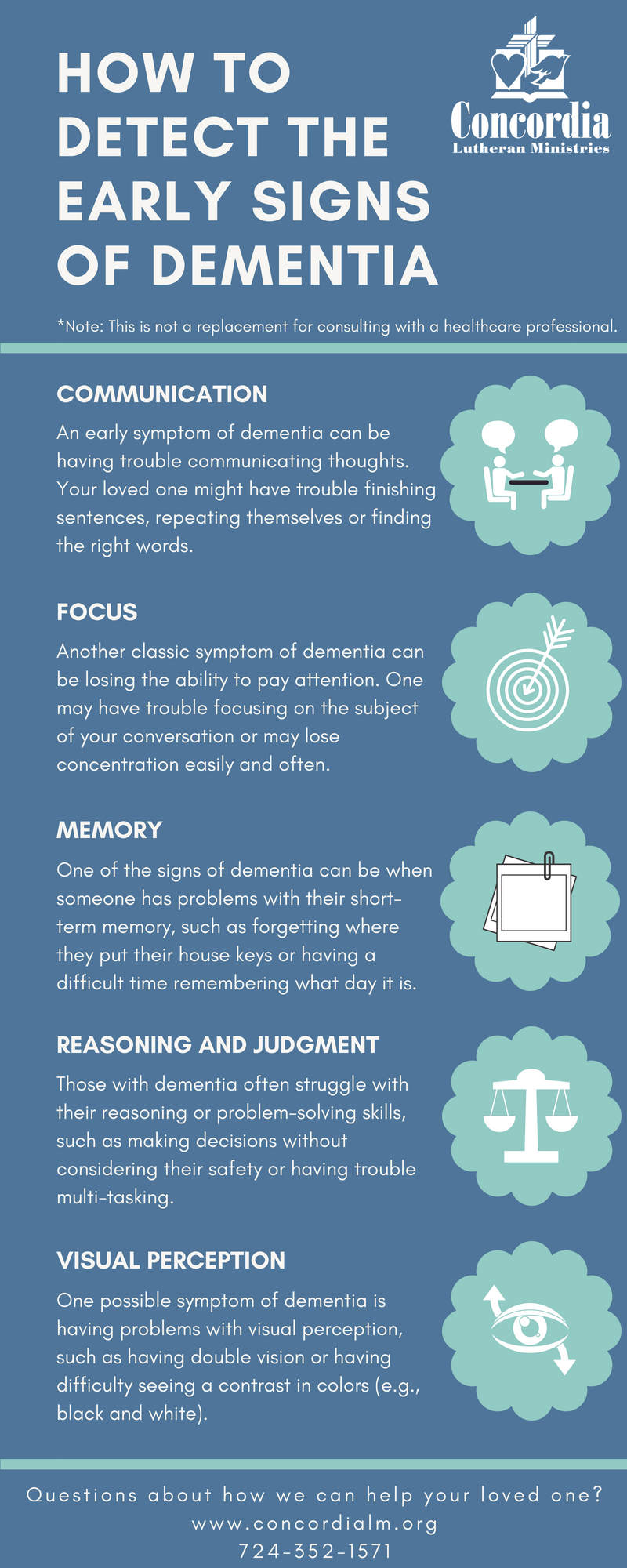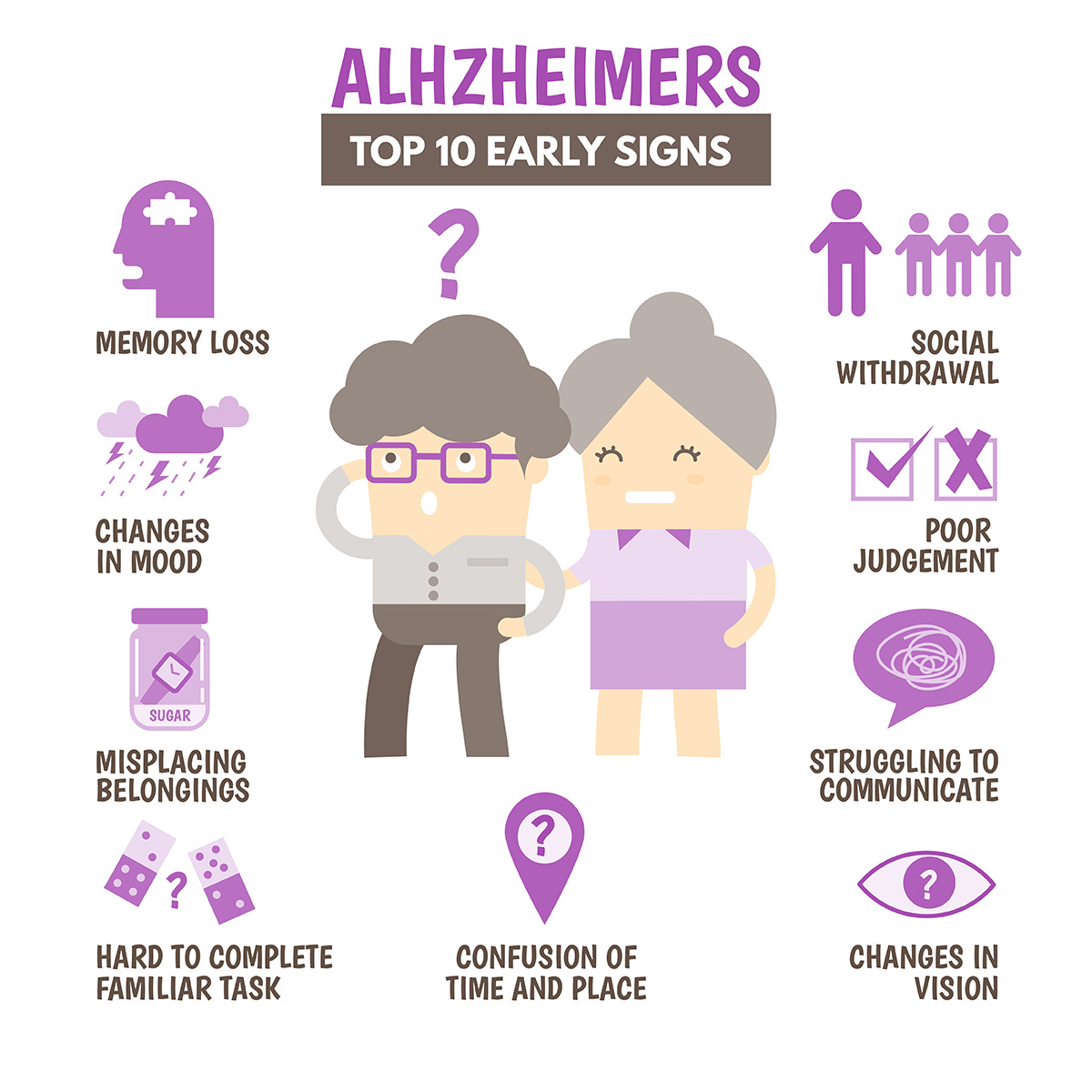The Role of Blood Pressure Management in Preventing Vascular Dementia
Wiki Article
Comprehending the Impact of Mental Deterioration on Every Day Life and Caregiving
Dementia influences every day life in extensive methods, impacting not simply those diagnosed however also their caretakers. As cognitive decline advances, you might observe changes in interaction and routine that difficulty both parties. Comprehending these shifts is necessary for maintaining self-respect and engagement. Just how do you adapt your caregiving methods to sustain somebody traversing this facility trip? The answers may surprise you as we check out the subtleties of this experience.The Stages of Dementia and Their Impacts on Day-to-day Live
As you browse the trip of mental deterioration, recognizing its phases can noticeably influence exactly how you handle everyday life. Dementia usually advances through three major phases: early, center, and late.During the middle stage, you'll experience more noticeable cognitive decrease. Daily jobs may become challenging, and keeping your self-reliance may require adjustments. Making use of tips and simplifying your environment can help.
In the late phase, people often require substantial support with daily tasks. Preparation for care becomes essential, concentrating on comfort and lifestyle. By recognizing these phases, you're much better equipped to react proactively, guaranteeing you or your loved one can browse the difficulties with dignity and poise.

Changes in Communication and Social Interaction
Exactly how do modifications in interaction impact your day-to-day communications as mental deterioration proceeds? As mental deterioration advances, you might notice that simple conversations become tough. Words might leave you, or you might have a hard time to discover the best phrases. This can cause irritation for both you and your liked ones. Nonverbal hints, like gestures or faces, come to be significantly crucial.You might locate it much easier to connect via these ways instead of relying only on spoken language. Paying attention abilities can additionally alter; you could find it harder to adhere to conversations or bear in mind what was just said (Fall Risk). This can cause misunderstandings or sensations of isolation
Encouraging perseverance and producing an encouraging environment can assist. Taking part in activities that promote connection, like songs or art, can enhance social interactions. Keep in mind, keeping relationships is still possible; it's almost adapting to new methods of connecting.
Impact on Daily Routines and Activities
While navigating day-to-day routines, you'll likely discover that tasks you when finished effortlessly ended up being much more difficult as mental deterioration proceeds. Simple activities like cooking, clothing, or perhaps showering might require more time and effort. You may discover on your own forgetting action in acquainted regimens or battling to remember where you positioned things. This can lead to aggravation not just for you, however also for those around you.Adjusting your atmosphere can help; for circumstances, labeling things or utilizing lists can simplify jobs. Engaging in recurring, organized activities can likewise supply comfort and a sense of accomplishment. Remember, it's all right to ask for assistance.
Psychological and Behavior Obstacles
Steering via daily regimens can cause not simply useful obstacles, but additionally emotional and behavior ones. You might observe changes in state of mind, such as increased stress and anxiety or frustration, which can come from confusion or trouble in completing tasks. As you browse these minutes, it is important to identify that your loved one might express their sensations via behaviors like anxiety or withdrawal.These psychological responses can be unforeseeable and might arise without warning, leaving you both feeling overwhelmed. You might discover that acquainted settings or routines can help in reducing anxiousness, but maintaining persistence comes to be significant. It is essential to verify their sensations, also if you do not fully recognize them.
The Role of Caregivers in Supporting Individuals With Mental Deterioration
As a caretaker, you play a crucial role in offering emotional support for people with mental deterioration. Establishing everyday treatment regimens can develop a feeling of security and convenience, aiding to relieve their stress and anxiety. By recognizing their demands and making use of reliable approaches, you can substantially boost their lifestyle.Psychological Assistance Techniques
When caring for someone with mental deterioration, comprehending the psychological landscape is necessary for offering reliable support. Straightforward gestures, like holding their hand or keeping eye contact, can develop a sense of protection. Ultimately, do not forget to take treatment of your own psychological demands; seeking assistance for yourself can improve your ability to care for them.Daily Treatment Routines
Developing everyday treatment routines is vital for giving stability and comfort to people with dementia, as these routines can help in reducing confusion and anxiousness. You can start by outlining a constant timetable for meals, activities, and remainder. This predictability aids your loved one feel a lot more protected and involved.
Integrate acquainted jobs, like folding laundry or watering plants, which can evoke positive memories and promote a feeling of accomplishment. Use aesthetic hints, such as schedules or lists, to guide them with the day.
Be versatile, though; adjust regimens as required based upon their state of mind or power degrees. Frontotemporal Dementia. Keep in mind, your perseverance and understanding are essential in steering their changing needs, ensuring they feel supported and valued throughout their life
Producing a Safe and Comfortable Living Atmosphere
Producing a comfortable and risk-free living environment is important for individuals with dementia. You'll wish to make home safety modifications that reduce risks and guarantee experience to give a feeling of convenience. By concentrating on these elements, you can help create a space that sustains both safety and security and wellness.Home Safety Modifications
As you navigate the obstacles of dementia, making home safety and security modifications can substantially enhance convenience and security. Label vital areas, such as the washroom and kitchen area, with clear indicators to help with positioning. These alterations not only advertise safety and security but likewise motivate independence, enabling your enjoyed one to really feel more at simplicity in their setting.Comfort and Experience
After making certain a secure atmosphere with required adjustments, fostering convenience and knowledge is important for individuals with dementia. Preserve a constant routine to aid them really feel grounded and minimize stress and anxiety. Engaging in acquainted tasks, such as listening to music or gardening, can enhance their feeling of belonging, making their living setting a true refuge.Methods for Reliable Caregiving and Support
While navigating the difficulties of dementia treatment can really feel overwhelming, carrying out efficient techniques can greatly boost both the caretaker's and the person's daily experience. Start by establishing a routine; predictability helps minimize anxiety for both you and your enjoyed one. Use clear, simple communication-- short sentences and direct inquiries can protect against confusion.
Do not neglect to take treatment of yourself; schedule breaks and get in touch with support system. Sharing experiences with others in similar circumstances can supply useful understandings and emotional alleviation.
Finally, stay patient and versatile. Dementia can bring unpredictable modifications, so adapting your technique is essential. By using these techniques, you can foster an extra positive setting that profits both you and your loved one.
Often Asked Inquiries

What Are the Different Kinds Of Dementia?
You'll find several kinds of mental deterioration, including Alzheimer's, vascular dementia, Lewy body mental deterioration, and frontotemporal mental deterioration. Each kind impacts memory and cognitive function in a different way, so understanding the differences is important for proper diagnosis and treatment.Just How Can I Aid Someone With Early-Stage Mental Deterioration?
You can aid somebody with early-stage dementia by being client, providing assistance, and urging them to take part in tasks they delight in. Keeping routines regular and preserving open communication can also make a substantial distinction in their every day life.Are There Financial Resources Available for Dementia Care?
Yes, there are financial resources readily available for dementia care. You can discover government assistance programs, not-for-profit organizations, and insurance policy alternatives. It's https://maps.app.goo.gl/NsGiGmoMsucVrUGM6 likewise important to seek advice from local firms for certain resources tailored to your scenario.What Lawful Considerations Should Caregivers Understand?
As a caregiver, you ought to think about power of lawyer, health care proxies, and guardianship legislations. It's necessary to recognize the lawful rights and responsibilities you hold, guaranteeing your loved one obtains proper care and defense.How Can I Cope With Caregiver Stress And Anxiety?
You can handle caretaker stress and anxiety by prioritizing self-care, looking for assistance from good friends or groups, establishing sensible expectations, taking breaks, and practicing relaxation strategies. Remember, your wellness matters equally as much as the person you're looking after.Understanding the Effect of Mental Deterioration on Daily Life and Caregiving.
As you browse the journey of mental deterioration, understanding its stages can noticeably influence how you handle everyday life.While steering daily routines, you'll likely notice that tasks you as soon as completed easily come to be more challenging as dementia advances.Developing everyday treatment regimens is crucial for providing stability and convenience to people with mental deterioration, as these regimens can help reduce confusion and stress and anxiety.While steering the challenges of mental deterioration care can feel overwhelming, implementing effective techniques can significantly enhance both the caregiver's and the client's day-to-day experience.
Report this wiki page